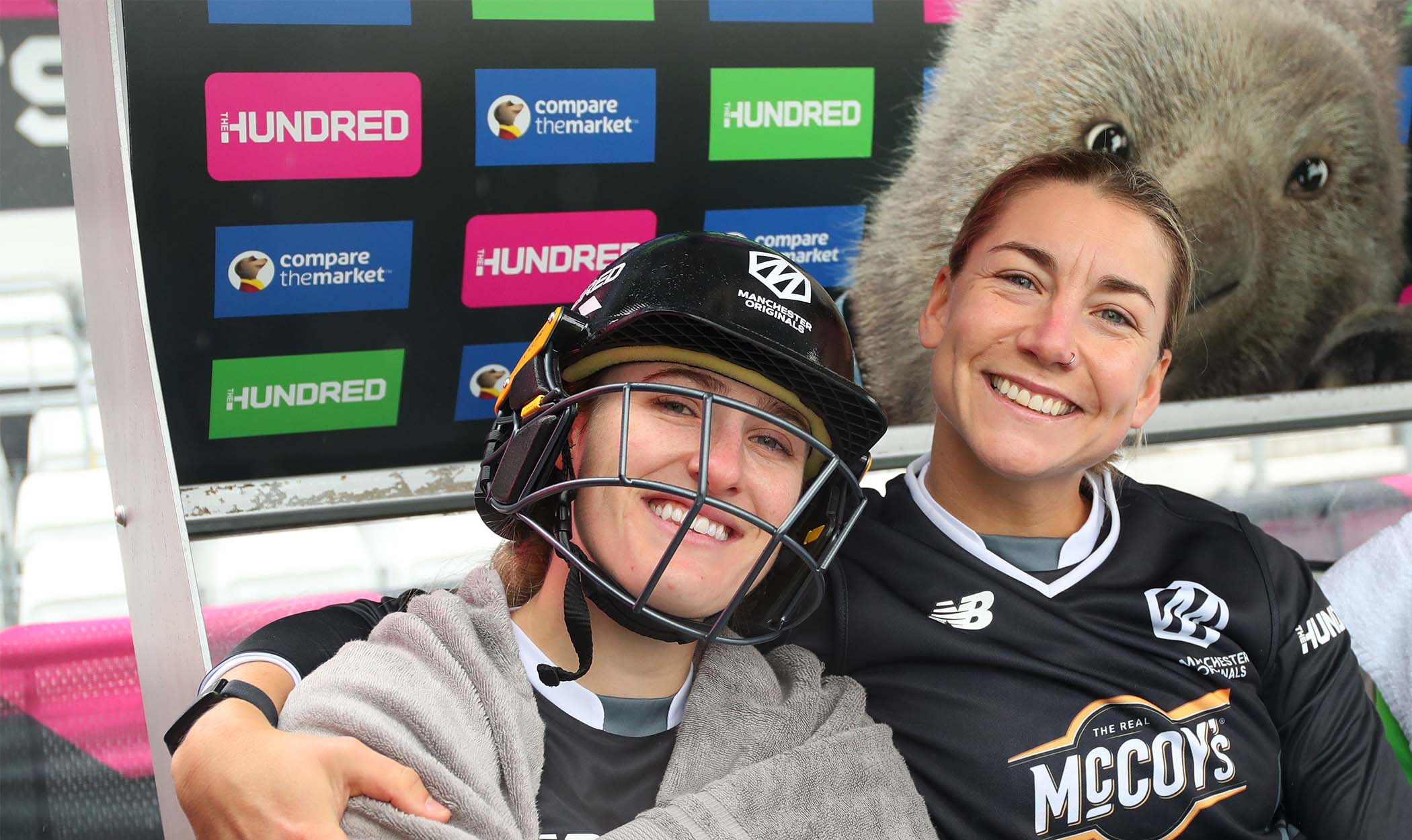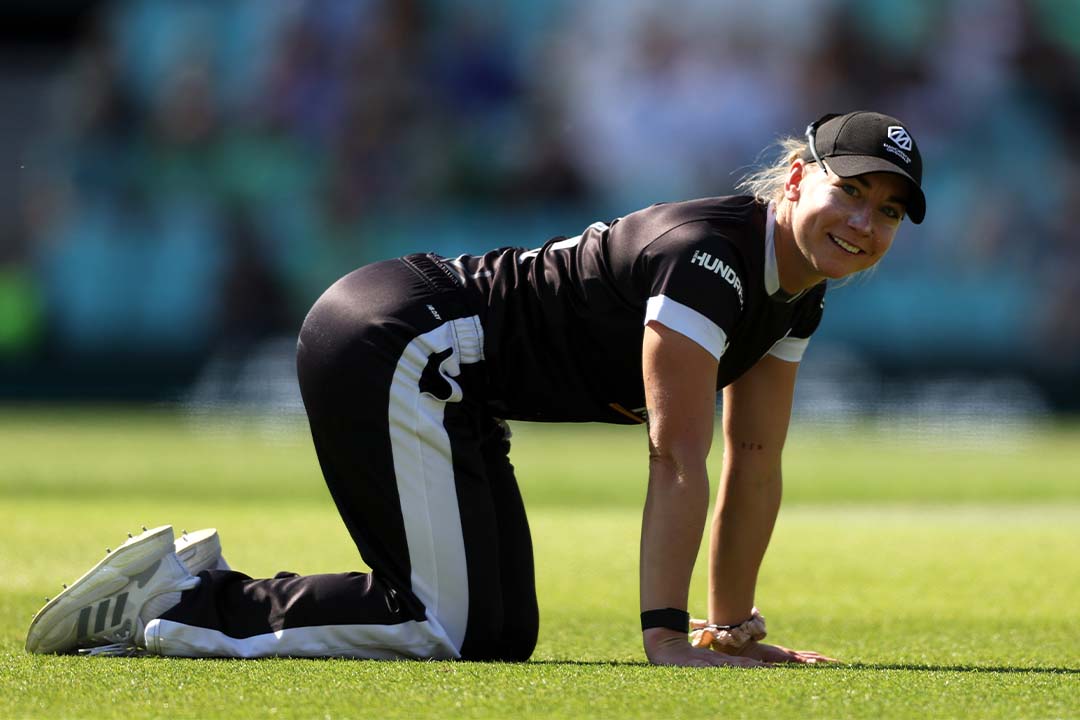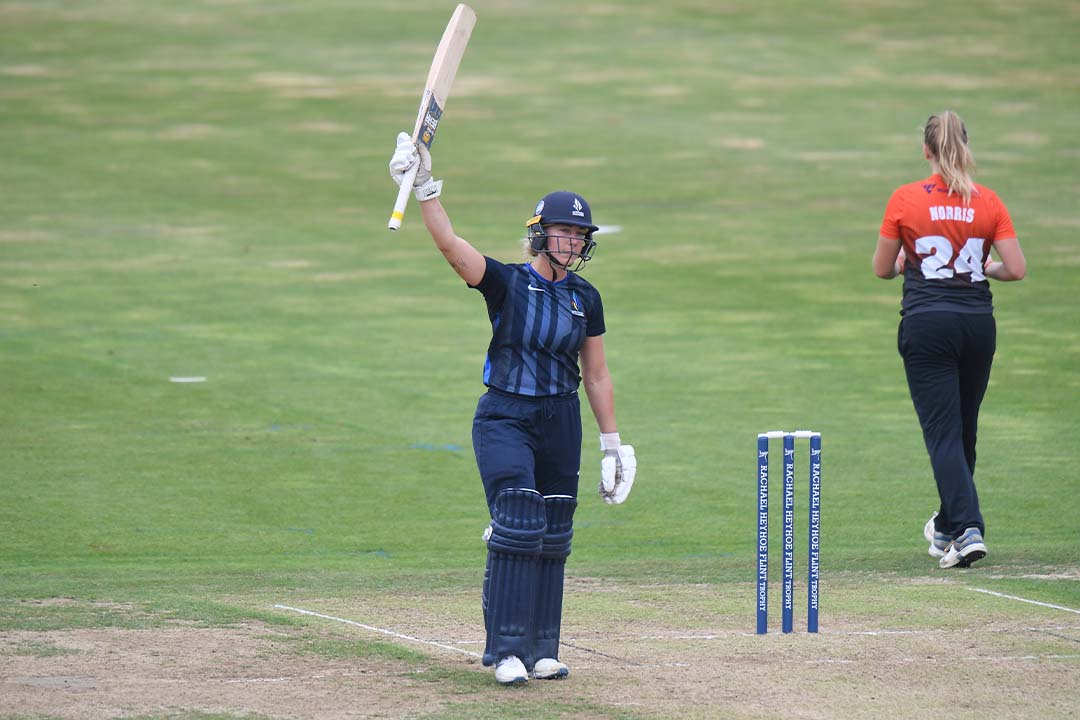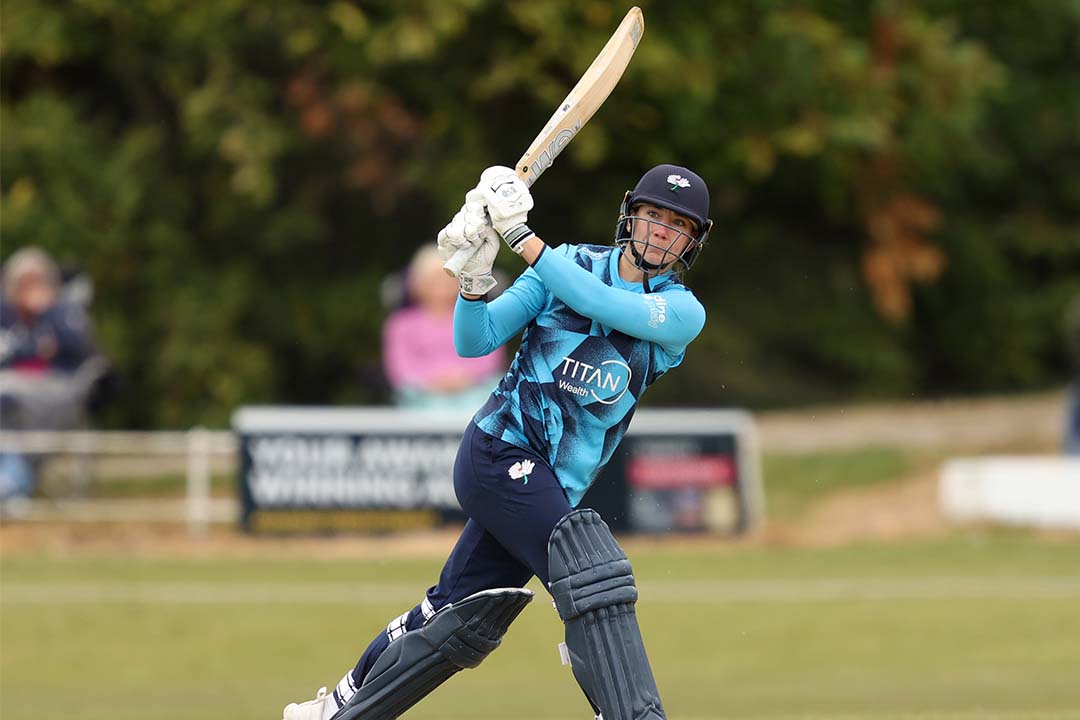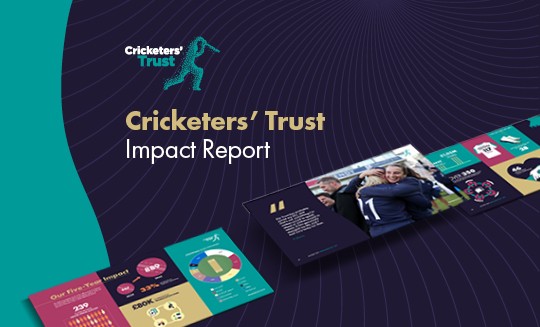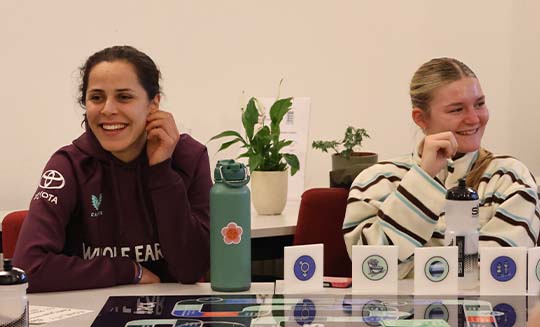PCA PRESS RELEASE
Read Ami Campbell’s exclusive interview in issue 36 of Beyond the Boundaries.
To see more articles, click here
On a bright sunny afternoon in early May, Ami Campbell is in her happy place, back wearing the White Rose after a strong start in Tier 2 of the women’s game. A transitional year for the county ahead of joining the top division in 2026, the left-hander has made an immediate impression with the Yorkshire faithful, highlighted by an unbeaten 165 off 105 deliveries against Derbyshire Falcons.
In 2023, however, Campbell was at a crossroad in her cricketing career. In only the second year as a professional, she suffered with long lasting low moods and emotional dysregulation which led to repeated cycles of depression.
This was when she decided to get in touch with the PCA, who referred the then Central Sparks player to the Cricketers’ Trust. As is often the case, the players’ charity secured a therapist the very next day with the support of Sporting Chance – the Trust’s official partner for mental health treatment.
"I just want to help and try and raise awareness in neurodivergence, which is becoming increasingly common in sport."
AMI CAMPBELL
“When I started experiencing these fluctuating emotions and they started to worsen, that’s when I began to struggle in a professional environment and focus on my game. It got to a point where I couldn’t leave my house and started to have some really dark thoughts. That is when I reached out to Lynsey Williams, my then Personal Development Manager. I felt very comfortable in opening up to her about how I was feeling. She is like a second mum to me and honestly, I don’t know if I would still be here if it wasn’t for her.”
Campbell had eight sessions with a therapist and was put on medication to curb her depression. However, following an initial phase of feeling more stable, she later learned that she had dual type Attention-Deficit/ Hyperactivity Disorder (ADHD), where the patient exhibits characteristics of both inattention and hyperactivity though her symptoms were more internalised as a woman is able to mask them in a much better manner.
It’s something she says went undiagnosed during her childhood, so learning about the disorder was a welcome validation for her to understand why she felt different compared to people around her and found some areas more challenging when growing up. “This was something raised by my teachers but a lack of exposure and education from my parents meant this was overlooked. However, it was also a eureka moment and confirmation of the struggles I had been having. Without the support from Sporting Chance and the Cricketers’ Trust, it would have been extremely difficult to carry on playing professional cricket,” she added.
Now with full understanding of her ADHD, the Newcastle-born player remains extremely open and honest about her situation and has spoken about it on various platforms and podcasts. Being upfront about her struggles is something Campbell sees as a positive. The former Manchester Originals star said, “I just want to help others. I was diagnosed very late on in my career, and it was a pretty big uphill battle before. So, for anyone else, I just want to help and try and raise awareness in neurodivergence, which is becoming increasingly common in sport.”
Be it on the pitch or off it, Campbell continues to remain positive and firmly believes in the mantra of things always happening for a greater good. She proudly suggested that the disorder has helped her in her cricketing career, increased resilience and has made her an even better player than before. Using ADHD as her strength, the 33-year-old said, “I am now old enough to know how to manage myself on a daily basis. But it is still important for people to know that yes, it is a disorder but there’s nothing wrong in being different and seeing things in a more unique way.
The Cricketers' Trust is a lifeline when life gets challenging, and you can always rely on the charity to help you through."
AMI CAMPBELL
“Without the neurodivergence I wouldn’t be where I am now. I am grateful that I have it, because without it I wouldn’t have been such a perfectionist and creative whilst performing at such a high-performance level in sports. I have started to perform at my potential because I have learned to regulate myself in high performance situations. It is not an easy fix. I still have to manage myself on a daily basis, but I have now learned to use my neurodivergence to my advantage.”
The Cricketers’ Trust continues to provide lifechanging support to past and present cricketers and their immediate families in England and Wales. Being one of the leading charities in sport, it supported 91 mental health cases in 2024 alone. “It is massively important for us to keep on supporting the Cricketers’ Trust,” voiced Campbell. “It is a lifeline when life gets challenging, and you can always rely on the charity to help you through. It is timeless and something we should be investing in all the time.”
Urging fellow cricketing peers to back their own charitable organisation, Campbell’s advice to anyone going through the same situation is simple – there is more to life outside of cricket so learn to switch off and explore your life and interests away from the pitch.
Read the full magazine below:
